By selecting your itinerary in advance, our platform uniquely allows you to view boats that can deliver selected tinerary with full cost transparency, including fuel etc..
Famous Ancient Sites
The Acropolis is a must-see. It's a big hill with ancient ruins like the Parthenon, a temple for Athena, the goddess. You can see all of Athens from here. There are museums nearby with old treasures.
Fun Neighborhoods
Places like Plaka and Monastiraki are fun to walk around. Plaka has old houses and narrow lanes. Monastiraki has a big market where you can buy many things.
Greek Food and Fun
Greek food is delicious. Try dishes like souvlaki and moussaka at local cafes. Athens also has fun bars and clubs for the night.
Outdoors and Beaches
You can hike up Mount Lycabettus for a great view. There are gardens in the city for relaxing and beaches close by for swimming.
Athens: Where Old Meets New
Athens is special because it has ancient ruins and modern places to have fun. It's great for anyone who likes history, good food, or just exploring.



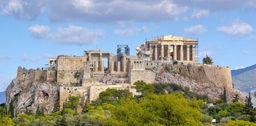
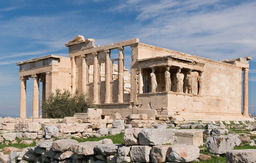
The Temple of Olympian Zeus, also known as the Olympieion, was an ambitious project begun in the 6th century BC but not completed until the reign of the Roman Emperor Hadrian in the 2nd century AD. Its enormous size — it once boasted 104 colossal columns — made it one of the largest temples in the ancient world, a clear statement of the power and wealth of Athens. The temple was dedicated to Zeus, chief among the Olympian gods, reflecting the religious devotion and hierarchical structures of ancient Greek society. Today, although only a few columns stand, they are a magnificent sight, evoking the grandeur and scale of classical Greek architecture. The temple's ruins provide a glimpse into the religious practices of the ancient Greeks and offer a stark reminder of the passage of time and the changing fortunes of civilizations.
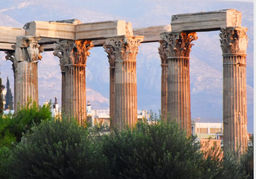
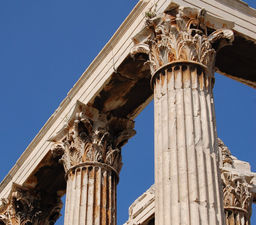
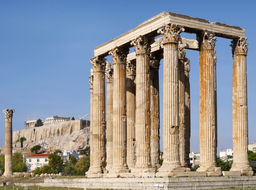
This museum, located in the heart of Athens, offers a fascinating exploration of the technological and scientific advancements of ancient Greek civilization. It reveals a side of the ancient Greeks that often gets overshadowed by their artistic and architectural achievements. The museum houses replicas of technological inventions that date from the Helladic period to the late Roman period, highlighting the creativity and ingenuity of Greek engineers. Exhibits include the Antikythera mechanism, an ancient analog computer used to predict astronomical positions and eclipses, as well as hydraulic clocks, war machines, and tools for surveying and construction. The museum not only showcases the scientific acumen of the Greeks but also emphasizes their influence on subsequent technological advancements. It provides a comprehensive overview of how ancient Greeks sought to understand and manipulate the world around them, laying the groundwork for modern science and engineering. Visitors can gain an appreciation for the depth and breadth of Greek contributions to the development of technology and understand how these ancient innovations still impact our world today.
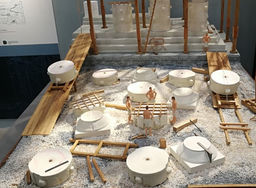
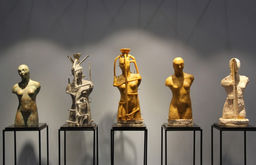
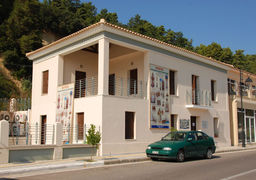
Tucked away in the serene cove of Glyfada, Krabo Beach is a secluded retreat offering the perfect balance of natural beauty and refined elegance. With its golden sands, crystal-clear waters, and sophisticated ambiance, this exclusive beach is an oasis for those seeking a tranquil escape just outside Athens. Indulge in Mediterranean flavors at the beachfront restaurant, unwind in the comfort of stylish sunbeds, or take a refreshing dip in the azure waters of the Aegean. Krabo Beach blends laid-back luxury with a touch of cosmopolitan charm, making it a must-visit destination on the Athenian Riviera.



Athens from a Different Perspective: Perched in the heart of Athens, 360 Cocktail Bar offers a spectacular panoramic view of the Acropolis and the city skyline, making it one of the most sought-after rooftop bars in the capital. With a stylish ambiance, expertly crafted cocktails, and a vibrant atmosphere, this bar is the perfect spot for both a relaxed afternoon drink and an unforgettable night out. Whether you're savoring a signature cocktail, enjoying the breathtaking sunset, or soaking in the lively energy of the city, 360 Cocktail Bar delivers an exceptional rooftop experience in Athens.




Go out on the town
Transfer boats to take you to the attractions!
Answered
































































































































































































































































































































